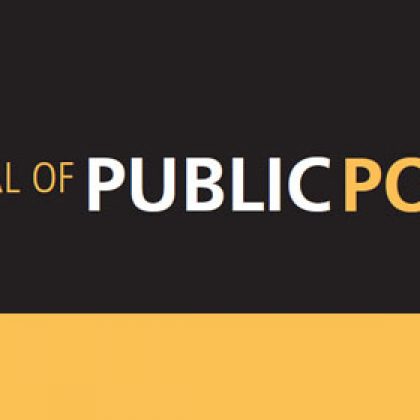Making gratis greener
In 2020 Cambridge reviewed our policy of providing print copies to Editorial Board members of Cambridge-owned journals. In our Q&A with Ella Colvin , Director of Publishing – Journals, reflects on this project and our plans for a greener future.
Why did Cambridge choose to move our editorial board members from Cambridge owned journals to online-only access?
We took the decision to move the majority to online-only access for two key reasons. Principally to take a lead on print reduction to support our ambitions to reduce carbon emissions, but also in anticipation of reducing journal margins (read our related blog on this), to lower print and distribution costs.
At the time of taking the decision, we also had concerns about the resilience of print copy receipt bearing in mind that so many Board members were locked down in regions dealing with Covid restrictions and wouldn’t have access to copies going to institutional addresses. We therefore thought about how we could bolster the impact and value of online access and were pleased to be able to add online access to the archive to a Board member’s access to current content.
We hoped our Boards would generally support the new policy. Also, that we could take the experiences gained into similar conversations with society partners.
What has been the uptake and reaction of moving our Cambridge-owned titles to online access for board members?
‘I totally support the decision to move access to online. It makes perfect sense on all levels.’
-Gratis project feedback
While we knew the policy shift was the responsible thing to do, we were nervous about its reception and expected to hear concerns from particular journals and Boards. We therefore took a pragmatic approach to rolling out the policy, defaulting to online-only access in the majority of cases, but were prepared to make exceptions where Board members felt particularly strongly about retaining print.
We also took the decision early on to make print the default for Editors in Chief (EiCs), who often use print as work copies for their day-to-day journal activities, although we did invite EiCs to move online-only and some opted to do so. We heard nothing from the majority of Board members, which we took as overall acceptance of change. We also heard from a handful of Boards and individual Board members that they wanted to continue to receive print, although emails of support outweighed the former, with words to the effect that we were ‘doing the right thing’.
What was the scale of the project?
‘Yes, please drop my print gratis. We no longer need to waste the paper and I read the articles online anyway.’
-GRATIS PROJECT FEEDBACK
The project took many man hours and many teams to organise, from careful communications through to switching off print and setting up online-access.
What has the impact been?
It has been enormous. We not only now have a new policy of online-only access for new Board members, but we achieved a 74% reduction in print gratis for our Cambridge-owned journals. We set up 2481 Individuals with Online access which meant from 2021 we have stopped sending over 12,800 copies across 96 journals, the equivalent of approximately 6,410kg of C02.
We also ensured that staff members were no longer receiving print and cut over 160 subscriptions across our Cambridge and New York offices.
We did make a few Editorial Board exceptions in the end, so we hope we rolled out the new policy in a fair and understanding way for those who really wanted to retain print.
‘This is a very good decision. I was running out of shelf space anyway!’
-GRATIS PROJECT FEEDBACK
What are the next steps?
Over the next couple of years we will be focussing on moving eligible journals entirely online only, in collaboration with our society partners. A number of societies have already come forward, keen to take action on reducing their carbon footprint. We have learned a lot from our work on the Cambridge-owned titles and will be in a good position to provide support and guidance as needed. For those journals that will continue to print in the future, we will work closely with our partners to help reduce gratis copies where possible.







